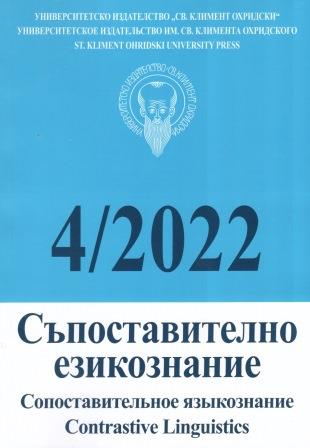Вербализация понятий душа / дух в русском и грузинском языках
Verbal expression of the concept soul/spirit in Russian and Georgian
Author(s): Inga KikvidzeSubject(s): Language studies, Language and Literature Studies, Foreign languages learning, Applied Linguistics, Eastern Slavic Languages, Philology
Published by: Софийски университет »Св. Климент Охридски«
Keywords: spirit; soul; Russian; Georgian
Summary/Abstract: The article discusses a set of means by which the concepts of soul/spirit are verbalized in languages of different systems – Russian and Georgian. The article analyzes the relationship between the semantic content of these words and the scope of their use; in particular, differences in their meaning and use in religious and scientific discourses. From a comparative point of view, the paper analyzes semantic structure and scope of meanings of the Russian words душа / дух (soul/spirit) and the Georgian lexical units სული [suli] / სამშვინველი [samshvinveli] / გონი [goni]. The studied units in these languages are polysemantic words, however, the semantic content of their lexico-semantic variants is not identical. The Russian word дух corresponds to the Georgian words სული [suli] and გონი [goni]; and the word душа corresponds to Georgian – სული [suli] and სამშვინველი [samshvinveli] depending on the sphere of their use. The results of the comparative study are presented in the article based on the analysis of lexicographic data of explanatory, bilingual and encyclopedic dictionaries, as well as parallel contexts from religious and scientific (philosophical) literature.
Journal: Съпоставително езикознание / Сопоставительное языкознание
- Issue Year: 2022
- Issue No: 4
- Page Range: 23-31
- Page Count: 9
- Language: Russian
- Content File-PDF

